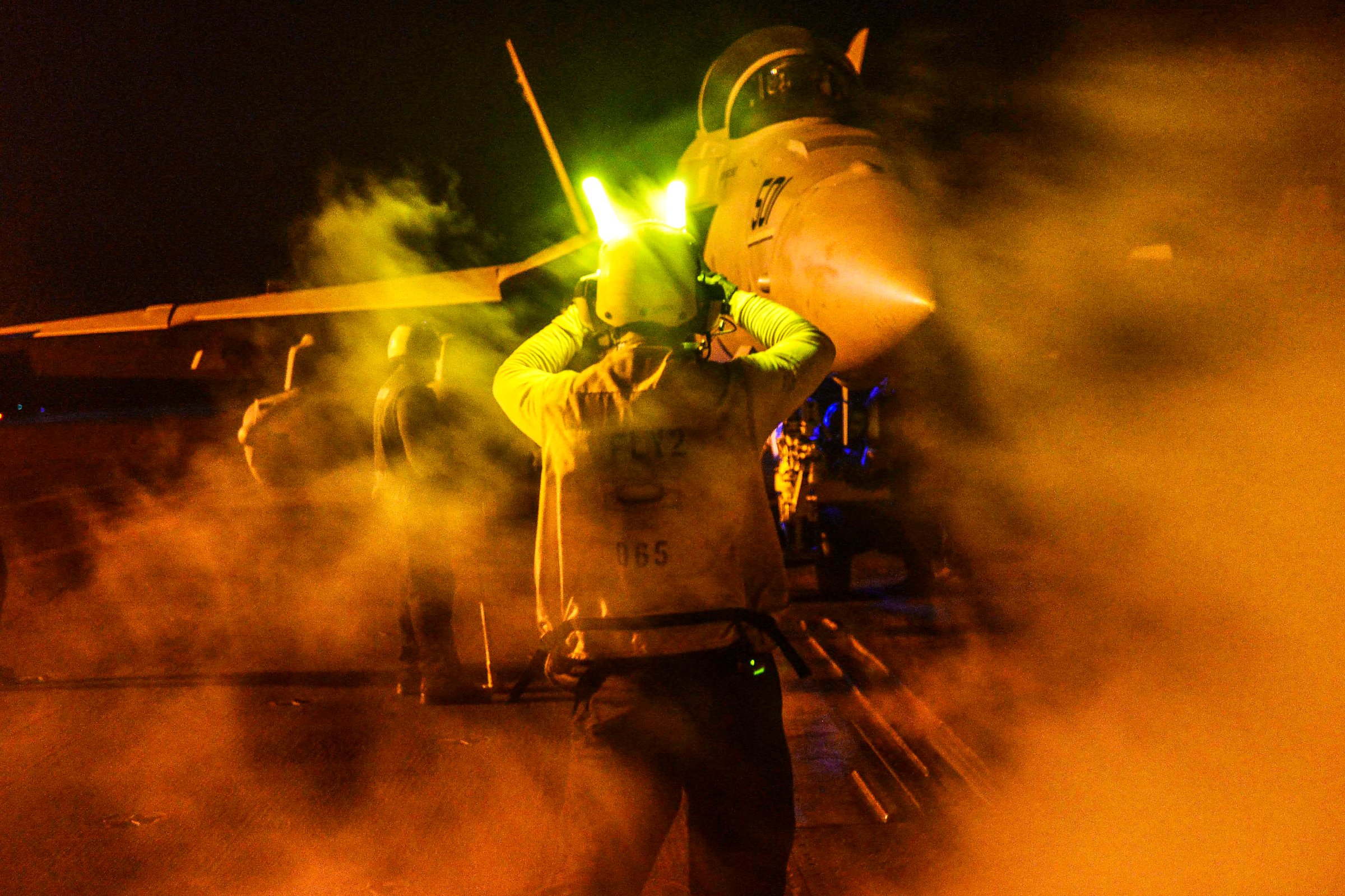
The U.S. has been bombing the Islamic State of Iraq and Greater Syria (ISIS) for nearly a year, and its citizens—thanks to no American blood being spilled—are paying scant attention. That’s probably just as well, given the lack of consensus inside the U.S. government on what to do, and on the opposing views of two of the nation’s most influential newspapers.
Here’s a tip: it’s generally a bad idea to expand a shooting war when the government and press are split on its merits, a President’s in the twilight of his tenure, and the public doesn’t care. Even successful air campaigns—remember the 32-week effort that pushed Muammar Gaddafi out of Libya’s presidential tent in 2011?—seem less victorious in hindsight, as the north African “nation” becomes a Petri dish for terrorists (the U.S. launched an air strike early Sunday that reportedly killed Mokhtar Belmokhtar, an al-Qaeda-linked terrorist who’d set up shop there, the Pentagon said Sunday).
The U.S. thirst for vengeance on ISIS was fueled by the beheadings of three Americans last year. ISIS wanted deeper American involvement (remember, many of them are suicidal) but Washington refused to bite. While President Obama has pledged to “degrade and destroy” ISIS, Pentagon officials lately have been saying “containment” more often. The air strikes have frozen the situation on the ground, which amounts to a de facto containment strategy. Absent a major terror strike linked to ISIS, that could continue indefinitely.
Before the 2003 U.S. invasion of Iraq, one of every three U.S. officers opposed it, according to an informal sampling of opinion at the time. Given that—and the years of turmoil it generated inside the U.S. military, and inside the region to this day—it’s not surprising that U.S. military leadership doesn’t want to wade more deeply into the anti-ISIS fight, as the Washington Post reported Sunday.
“Some of the strongest resistance to boosting U.S. involvement came from a surprising place: a war-weary military that has grown increasingly skeptical that force can prevail in a conflict fueled by political and religious grievances,” the Post said. “Their shift reflects the paucity of good options and a reluctance to suffer more combat deaths in a war in which America’s political leaders are far from committed and Iraqis have shown limited will to fight.”
Actually, it’s not that surprising. The notion that the military chomps at the bit to wage war is usually not the case. Some of its leaders, like Colin Powell, have advocated a series of guidelines (overwhelming force, clear objective) that have acted as a brake, when observed, on U.S. military action. It was the State Department, the Post reported, that pushed for assigning limited numbers of U.S. troops closer to the front lines alongside Iraqi forces to make U.S.-led air strikes more effective.
That schism inside the government has been reflected in recent days in editorials in the New York Times and the Post.
The Times complained Friday that Obama’s decision to dispatch 450 more U.S. troops to Iraq will do little to “change Iraq’s dysfunctional politics.” Iraqi politicians “have consistently demonstrated an inability or unwillingness” to share power and reduce the historic divisions among Sunnis, Shi’ites and Kurds, it said. “With each increase,” the Times noted, “the United States is being dragged more deeply into a war that lawmakers have been unwilling to authorize formally.”
The Post‘s Sunday editorial seemed uninformed by that piece on its front page about U.S. military doubts. It said the 450 troops, a 15% increase over the 3,100 already there, are too few to make a difference. “Rather than aiming to destroy the [ISIS], Mr. Obama is focused on limiting U.S. engagement,” the editorial said. “It is well within the capacity of the United States to destroy the [ISIS].”
Well, yes. Just like the U.S. succeeded in destroying Saddam Hussein’s state.
More Must-Reads From TIME
- The 100 Most Influential People of 2024
- Coco Gauff Is Playing for Herself Now
- Scenes From Pro-Palestinian Encampments Across U.S. Universities
- 6 Compliments That Land Every Time
- If You're Dating Right Now , You're Brave: Column
- The AI That Could Heal a Divided Internet
- Fallout Is a Brilliant Model for the Future of Video Game Adaptations
- Want Weekly Recs on What to Watch, Read, and More? Sign Up for Worth Your Time
Contact us at letters@time.com